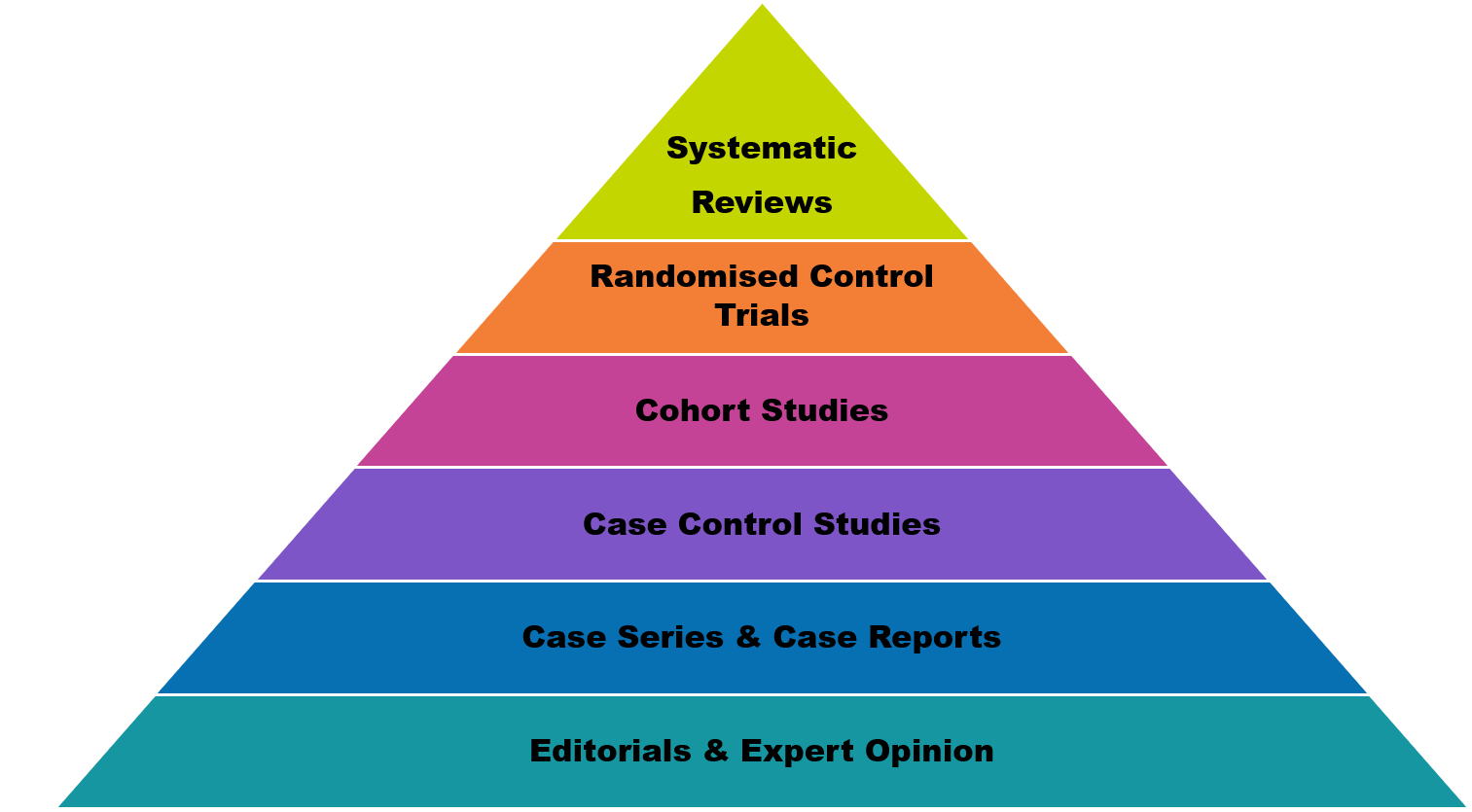High Level Reviews (systematic, integrative, scoping)
Searching the literature
![]()
![]()
![]()
Searching the literature is a lengthy process. You'll need time to accustom yourself to the different databases and search engines beast suited to your research, the most effective words to search on, and the most appropriate types of information sources for your review. For high level reviews, you will also need to record your search strategies for reporting in your review. There are tools to help you manage your search results and ways to automatically re-run your search.
 Watch a short video on developing your search (1:02).
Watch a short video on developing your search (1:02).
The hierarchy of evidence in health and medical literature
It is important to understand the hierarchy of evidence when undertaking research as this indicates the quality or strength of evidence.

Systematic Reviews
The application of strategies that limit bias in the assembly, critical appraisal, and synthesis of all relevant studies on a specific topic. Systematic reviews focus on peer-reviewed publications about a specific health problem and use rigorous, standardized methods for selecting and assessing articles. A systematic review may or may not include a meta-analysis, which is a quantitative summary of the results.
Randomized Control Trials (RCT)
An epidemiological experiment in which subjects in a population are randomly allocated into groups, usually called study and control groups, to receive or not receive an experimental preventive or therapeutic procedure, manoeuvre, or intervention. The results are assessed by rigorous comparison of rates of disease, death, recovery, or other appropriate outcome in the study and control groups.
Cohort Studies
The analytic method of epidemiologic study in which subsets of a defined population can be identified who are, have been, or in the future may be exposed or not exposed, or exposed in different degrees, to a factor or factors hypothesized to influence the probability of occurrence of a given disease or other outcome. The main feature of cohort study is observation of large numbers over a long period (commonly years) with comparison of incidence rates in groups that differ in exposure levels.
Case Control Studies
The observational epidemiologic study of persons with the disease (or other outcome variable) of interest and a suitable control (comparison, reference) group of persons without the disease. The relationship of an attribute to the disease is examined by comparing the diseased and non-diseased with regard to how frequently the attribute is present or, if quantitative, the levels of the attribute, in each of the groups.
Case Series, Case Reports
A group or series of case reports involving patients who were given similar treatment. Reports of case series usually contain detailed information about the individual patients. This includes demographic information (for example, age, gender, ethnic origin) and information on diagnosis, treatment, response to treatment, and follow-up after treatment.
Editorials, Expert opinions
Articles or other publication presenting the opinion of the editor/editors or publishers.
Glossary CEBM - Centre of Evidence-Based Medicine.  University of Oxford
University of Oxford


